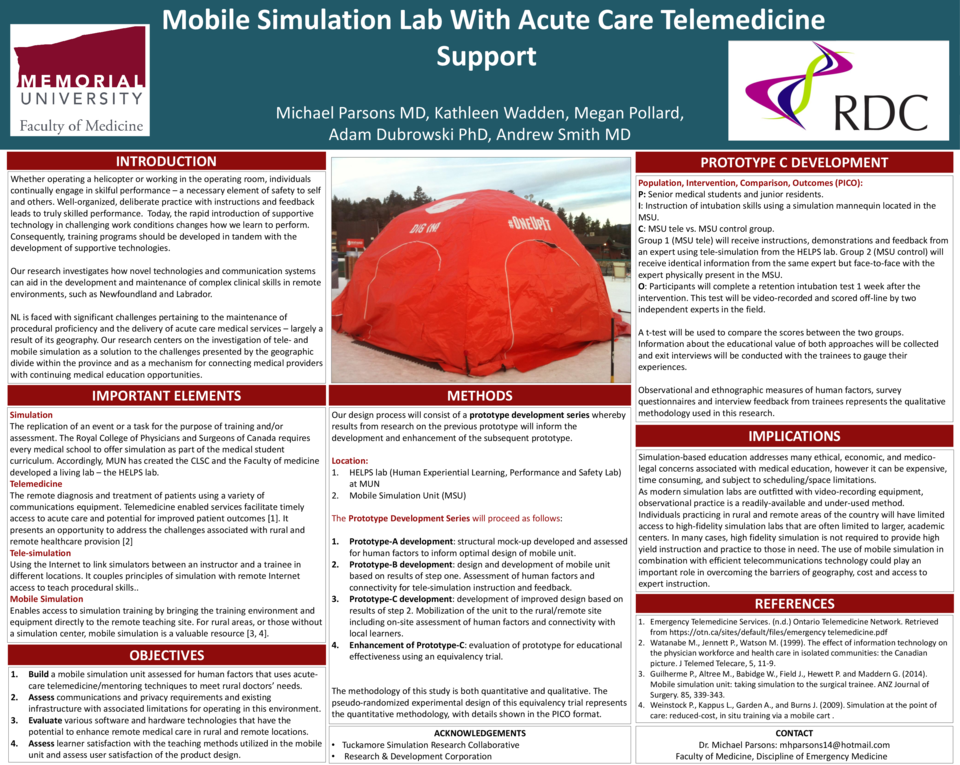Abstract
Presented at: MESC; St. John's, NL; December, 2015
Purpose: Simulation – the replication of an event/task for the purpose of training and/or assessment – is an integral part of health care education. In Newfoundland and Labrador, rural medical education is particularly important as approximately half our population lives in rural communities spread across a vast geography. This presents a number of challenges to providing acute medical services and maintaining procedural proficiency. We are building a mobile simulation unit (MSU) with telemedicine support to overcome geographical barriers and bring education to the learner.
Methods: This project follows a prototype development series framework, whereby results from each prototype inform/enhance development of further prototypes. Prototype 1 is currently in development. Two research students have completed background research and determined the most appropriate and cost-effective materials. The key components of the design are portability, ease of use, functionality and versatility.
Results: A portable inflatable tent was chosen as the best option for the main structure of the MSU in terms of cost, portability and ease of use. The tent is locally designed and functions in a variety of environmental conditions. It will be outfitted with heat and light to establish a comfortable work area. Electricity will come from local power or a portable generator, allowing deployment in remote locations. For simulated “patients” or mannequins, a standard massage table will be used as a moveable “bed”, as they are inexpensive and portable. Fixed cameras, chosen based on battery life, connectivity and image quality, will be secured around the tent and learners will wear a portable camera allowing instructors to “see what they see”. Webcams and AV projectors will further facilitate instructor-trainee communication. Videos will be reviewed and analyzed using StudioCode™. Mac computers will be positioned in the MSU and at Memorial’s HELPS lab. Internet connection for the MSU will be through local Wi-Fi or cellular access. Waterproof containers and a cargo trailer will be used to transport all components of the MSU.
Conclusions: Using the above components, the first MSU prototype will be created. As a next step, we will assess the functionality of the unit in a practical setting and use this information to direct subsequent modifications.






